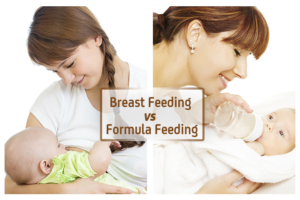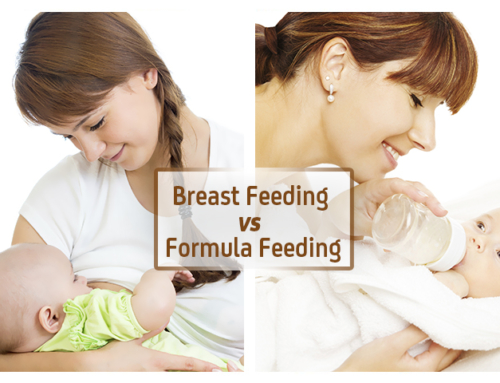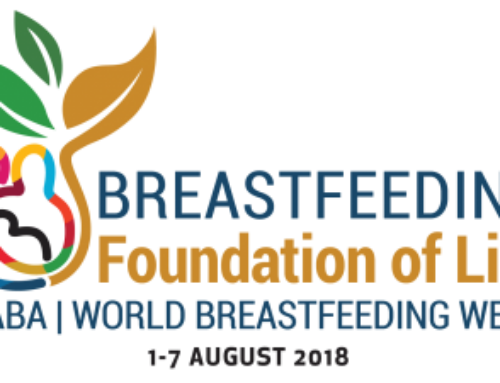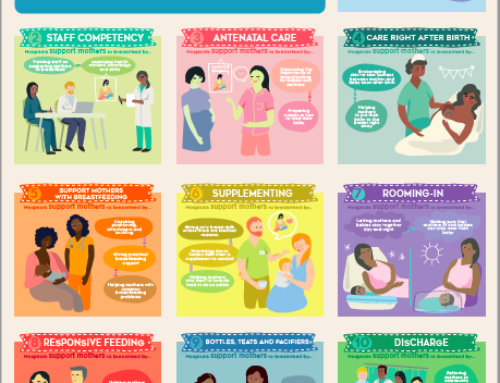Contrary to what we have been led to believe all these years, it seems that the public health initiatives to push vaccination may need to be reconsidered. Recent research out of the UK has found that vaccines actually offer far fewer benefits in terms of protection against various diseases. This comes as welcome news to the families who have faced immense criticisms for choosing to either forego vaccination or selectively vaccinate.
The research in question looked at over 1,000 children and grouped them by vaccination status: those who received had received no vaccinations and those who had received at least one shot during their lifetime. The researchers found that there was no difference in immune response between the two groups for a number of diseases (both those in and not in the current vaccine schedule). The researchers speculated that the reason for previous findings that supported the current vaccination schedule was a failure to control for many other variables that might influence the results.
“One of the biggest problems with vaccination research is the failure to consider either a family history of disease or general immune health,” said lead researcher Dr. Bickham. “One of the big benefits of our study was that we controlled for all of these variables – family history of disease, breastfeeding status, general immune health of the child, and so on. The fact that children who received at least some vaccines did not show a better immune response to the various diseases is evidence that vaccination is not working as completely as we have been led to believe. The shaming of families who choose alternatives is unwarranted and the public policies in place that push vaccination should be reconsidered in favour of more inclusive policies that don’t make these families feel bad for their choices.”
It’s important to note that the researchers are not saying there are no benefits to vaccination, but rather they have been over stated and that we need to start looking at other factors that might play a role – factors like family history of disease – that may tell us more about a child’s likelihood of having an appropriate immune response to various diseases.
***
Can you imagine?
Can you imagine an article like this hitting the press? Of course not, because it’s utterly ludicrous. Research like this would never even be published because the methods used are so inappropriate to study the effectiveness of vaccination. (If you haven’t guessed yet, the aforementioned bit is completely made up. As such, I apologize if there is a real Dr. Bickham who studies immunology. I completely made up that name and in no way has any bearing on any possible current or future Dr. Bickham.)
I would imagine most of you reading this immediately spotted the biggest problem: the groups used in the “analyses”. If someone were to suggest that we could study vaccine effectiveness by looking at those who only received only one shot and treat their outcomes the same as those who had received the full schedule, we would think they were more than a few cards short of a full deck. More like they were missing full suits. Add to it, no one suggests that a decision on effectiveness should be made under the assumption that vaccination should protect against everything. Some outcomes one would expect, some not, and if a vaccine doesn’t protect against some different disease, it doesn’t damn the vaccine.
Vaccines were never designed or made to work in such a way. When we look at vaccine efficacy and effectiveness, we have to be cognizant of the fact that they were developed with a certain number of doses in mind and that these doses are to be given in certain age brackets. When people deviate from this, we cannot then claim that these people belong to the same group as those who did not deviate. Especially in research. It puts a ridiculous onus on vaccines to do something they were not designed to do. It treats them as a magical elixir or panacea, if you will, and as such, we wouldn’t give a second thought to research that did this.
So why is it okay that we do this with breastfeeding?
Lately the backlash against the science of breastfeeding has been overwhelming. Far too many people are out there claiming that the research on breastfeeding doesn’t support the public policies in place to “push” (a.k.a., support) breastfeeding. Yet most of the research cited is of the same quality as the aforementioned made-up vaccine research because it blatantly ignores that breastfeeding evolved to occur in a specific manner.
Although many of the outcome measures associated with breastfeeding are health related and thus clear-cut (e.g., obesity, diabetes), the assessment of breastfeeding seems to be clear cut, but it isn’t. The problem has been that many researchers, and thus most of the breastfeeding research, has treated breastfeeding in a dichotomous way. It has been treated as all-or-none – you breastfeed or you don’t – without understanding the nuances in feeding methods and the potential implications of this to various outcomes.
Just as vaccines were created with a specific use in mind, breastfeeding has evolved biologically in a specific way; biologically, it is something that is to be done exclusively for approximately six months and then continued, along with solids, until the child weans, typically after age 2, though in some cases beforehand. Any research that fails to take this into account is grouping their participants erroneously and potentially masking any effects. (There are also other problems in that mixed groups may lump together babies who had formula for one week with those who breastfed for one week, treating them the same, but that’s yet another methodological grouping issue that masks any possible effects.) People are now using this research to try and claim that breastfeeding is “oversold”.
It’s not. Really.
What if we look at the research that doesn’t make this mistake? Although there is no research that truly has what we could call a “biological” or “evolutionary” breastfeeding group (i.e., exclusive breastfeeding for six months followed by complementary breastfeeding with solids until a minimum of two years), there is research that has started to examine exclusivity and/or duration of breastfeeding as an additional factor in their analyses. When we look at that data, we see that breastfeeding has hardly been oversold. In fact, we may be underselling it.
Take breastfeeding and obesity, for example. Although data has been mixed, when exclusivity or duration is examined (along with controlling for other known confounders such as parental BMI, SES, and the child’s lifestyle behaviours), we can see a dose-effect with those children who were breastfed for less time or who had formula the majority of the time having a greater risk of being obese[1][2]. The same can be said for analyses examining the relationship between breastfeeding and IQ, despite some researchers suggesting no relationship (even though, in some cases,their own analyses showing significant dose-effects[3]), which is likely explained by the paucity of studies that have actually included appropriate assessment of breastfeeding duration or exclusivity[4]. Most recently, research suggests a dose effect of breastfeeding on IQ, even after controlling for parental IQ (a confound that has previously been ignored), and declares previous null results may be in part due to the type of IQ test used[5]. In Denmark, a large prospective study using two samples and two different measures of IQ examined the relationship to breastfeeding duration (but not exclusivity) while controlling for myriad confounds (including those typically claimed to be the cause of any relationship, such as SES and parental education) and found a significant dose-effect of breastfeeding on later IQ (assessed in adulthood)[6]. In perhaps the most persuasive study – the PROBIT study, which is a randomized controlled trial in Belarus – both duration and exclusivity were assessed and it was found that with greater duration and exclusivity (controlling for confounds), clear evidence of a positive relationship to intelligence emerged[7].
Even more importantly than links to obesity and IQ, when we look at biological or evolutionary breastfeeding we can see strong evidence of the risks of not breastfeeding in this manner to more serious health conditions such as childhood cancer[8] and SIDS[9]. In the cancer research, we still face the issue of exclusivity being ignored with only duration being considered, yet significant results remain. (You can read more on the breastfeeding-childhood cancer research here.) In the SIDS research, exclusivity and duration were examined and found to have a greater effect than any breastfeeding at all, though any breastfeeding was also related to a “reduced risk” of SIDS.
We have to ask ourselves: how much more significant would these findings be if we actually were able to assess biological breastfeeding in its entirety?
Of course none of this is to say that formula shouldn’t be available or that women should lack choice, but rather to say that this push to say the science doesn’t support breastfeeding is not only misguided, but is hurting women’s ability to make an informed choice when it comes to how they feed their babies. (Yes, as hard as it may be to hear, choosing formula is accepting risk. Trying to pretend it’s not doesn’t help anyone. Just remember that we all accept risk, just in different areas.) It also affects the likelihood that society gets its proverbial shit together to better support new mothers in breastfeeding so that 60% of moms don’t report not being able to meet their own breastfeeding goals thanks to the numerous traps set up for them[10].
It is equally important to make sure people understand that increased or decreased risk does not equal certainty. Too often people bring up anecdotes of people that don’t “fit” the research and take it to mean the research needs to be thrown out; sadly, this is an effect of a science-illiterate population and one that needs to be addressed. Increased or decreased risk simply refers to the chances and does not dictate individual outcomes. It gives us information about general or population-level outcomes, but does not say a given individual will or will not face that specific effect, only their chances based on patterns in a larger group.
In closing, if we are going to talk about breastfeeding research, let’s make sure we do it correctly. Breastfeeding hasn’t evolved to be done partially or even for shorter durations; the biological norm is for a period of exclusive breastfeeding followed by continued complementary breastfeeding for a significant time period. If we are to look at any outcomes of breastfeeding, this is the standard to which it needs to be held. Then we can start to see the effects of deviating away from this and figure out the best way to support all parents in their feeding choices (yes, knowing the risks means we can also help minimize them when people don’t reach this biological norm for any reason). Once we have this information, then parents can make the decisions about what kind of risk they are willing to accept and how to minimize it, for then they will have the appropriate data to make such a conclusion.
_____________________________
[1] McCrory C, Layte R. Breastfeeding and the risk of overweight and obesity at nine years of age. Social Science & Medicine 2012; doi: 10.1016/j.socscimed.2012.02.048 [2] Gillman MW, Rifas-Shiman SL, Camargo CA, Berkey CS, Frazier AL, et al. Risk of overweight among adolescents who were breastfed as infants. JAMA 2001; 285: 2461-7. [3] Der G, Batty GD, Deary IJ. Effect of breast feeding on intelligence in children: prospective study, sibling pairs analysis, and meta-analysis. BMJ 2006; 333: 945 [4] Jain A, Concato J, Leventhal JM. How good is the evidence linking breastfeeding and intelligence? Pediatrics 2002; 109: [5] Kanazawa S. Breastfeeding is positively associated with child intelligence even net of parental IQ. Developmental Psychology 2015; 51: 1683-9. [6] Mortensen EL, Michaelsen KF, Sanders SA, Reinisch JM. The association between duration of breastfeeding and adult intelligence. JAMA 2002; 287: 2365-71. [7] PROBIT Study Group. Breastfeeding and child cognitive development: new evidence from a large randomized trial. Arch Gen Psychiatry 2008; 65: 578-84. [8] Amitay EL, Keinan-Boker L. Breastfeeding and childhood leukemia incidence: a meta-analysis and systematic review. JAMA Pediatrics 2015; 169: e151025. [9] Hauck FR, Thompson JMD, Tanabe KO, Moon RY, Vennemann MM. Breastfeeding and reduced risk of sudden infant death syndrome: a meta-analysis. Pediatrics 2011; doi: 10.1542/peds.2010-3000. [10] http://www.cdc.gov/vitalsigns/breastfeeding2015/index.html







Hi, Tracy – I have discovered your blog a while back, and I finally wanted to leave a comment to let you know how much I appreciate your writing. I agree with so much of what you say. In fact, I often feel like your articles are much more eloquent versions of the rants that I direct at anyone who’d listen to me: can everyone please stop talking about breastfeeding research as if breastfeeding were the intervention and not the baseline? Can everyone come to terms with the fact that we evolved breastfeeding on demand, breastfeeding exclusively for several months, and then breastfeeding to complement other foods until our children were (often way over) 2 years old? Moreover, can everyone accept already that – in the vast majority of cases – breastfeeding is the optimal way to feed our babies, so if breastfeeding in public is not accepted, we’re effectively punishing women for doing what’s by far the healthiest for the children by making it difficult for them to participate in social life? How is it OK that we’re very nearly confining them to shame-enforced house arrest for the many, many, many years they might be breastfeeding their children?
Anyway, I get carried away. Another thing I appreciate about your blog is how well you handle the annoyingly irrational criticism that is sometimes directed at you. No matter how many disclaimers you put in your articles, no matter how clearly you state your point, there will always be a bunch of voices going on and on about how you shame or make people feel guilty, or… I really don’t know how you put up with all this nonsense. But what I do know is that I’m really grateful that you seem relatively immune to it. Please don’t give up, and please keep writing because I really, really enjoy seeing new blog posts from you in my Feedly.
And speaking of criticism, honestly, I don’t even think you have to address anyone who’s attacking you for not having a PhD in the correct discipline, whatever they might imagine it to be. Your arguments and reasoning stand on their own. They’d be as good even if you were a high school dropout. Your reasoning is good and your writing is good. You write about an important subject and you write from a relatively rare perspective. All of this is very much appreciated.
So, well, keep fighting the good fight, and thank you for writing this blog.
Thank you so much 🙂
One problem is how difficult it would be to measure both duration and exclusivity in the same quantitative model without creating confounding effects. You could possibly use amount of formula used, but that has confounds of child’s appetite and parents diluting the powder. Plus it doesn’t speak of duration once food is introduced. Wish there were more evolutionary breastfeeders to study.
Also…
How is developmental psychology not the right area to study a sociological phenomenon with psychological and biological effects? The wrong PhD is a silly argument. Social sciences usually use more advanced quantitative methods because we can’t do random assignment. It’s not like you have a Humanities doctorate (not a dig on my Hum PhDs).
Signed,
An Education PhD
Thank you for your writing. It makes sense that both duration and amount of breastmilk would make a difference and that overly rigid categorizations would mask that effect. As you are familiar with the literature, is there anything that suggests at what level significant benefits starts to accrue? I have been milk-deficient since my baby was born 14 weeks ago; my milk came in very late, and never came in completely, despite weeks of supplemental pumping after feeding for literally hours a day (at least 15min every 2-3hours from 6am-12midnight, with at least one of those an hour-long power-pump) and trying fenugreek and other herbs, which seemed to have little effect. Even then, between my pumped milk and directly breastfeeding (I weighed him) he only got about 1/4-1/3 of his nutrition from breastmilk and the rest from formula. Right now, I am back at work and pumping, and he has increased the amount he drinks, so I estimate that he gets somewhere between 1/5-1/4 of his nutrition from me. Is there any data out there on what level of benefit this minimal amount of breastmilk might be giving him? I have looked but haven’t found very much. Breastfeeding him is becoming quite the battle, and basically the only time he ever screams is when I try to put him to breast at night.
I wish I had an answer for you as to the amount but we don’t know. Also, I imagine the amount differs based on the individual outcome. But regardless of outcomes, it’s wonderful you’re making it work for you :). Do it because you love it – no need to stress about something you don’t have control over! Xx
So you want to talk about the science behind breastfeeding as the optimum choice, but the examples you use are obesity and IQ? However, if you were really interested in scientific evidence, then why choose to focus on such unscientific terms and a total lack of causation? Though the medical community hasn’t admitted it, obesity isn’t a medical term. Because it has no fixed variables and there is no medical causation linked to the term, the fact is, it doesn’t fit any scientific definition at all. Furthermore, IQ has long been debated as not only imperfect but also not fixed. Since both IQ and obesity aren’t scientific terms, it’s a wonder to me that you’d even focus on them at all, and I’m totally ignoring the fact that their occurrence when it comes to breastfeeding is only ever correlation and not at all causation, whereas immunity against deadly diarrhea is proven and a better example of the importance of breastfeeding…of course, then your argument would be shot to hell since clean water with sterilized liquid formula almost totally eliminate the dangers therein. What is probably the saddest about this article is that you do mention how our culture inhibits breastfeeding, but you do it as an anecdotal throw away. The reality is that our culture does prohibit breastfeeding success for the vast majority of women. Of course, it’s not exciting to admit that the placenta does the majority of the work of the immune system, followed by colostrum, followed by proper hand washing and providing an infant with an environment free from infectious factors. But no one wants to be told to stay home, wash their hands, and wait for their infant to develop an immune system when they can all be judged for not using what is so readily available in their own person.